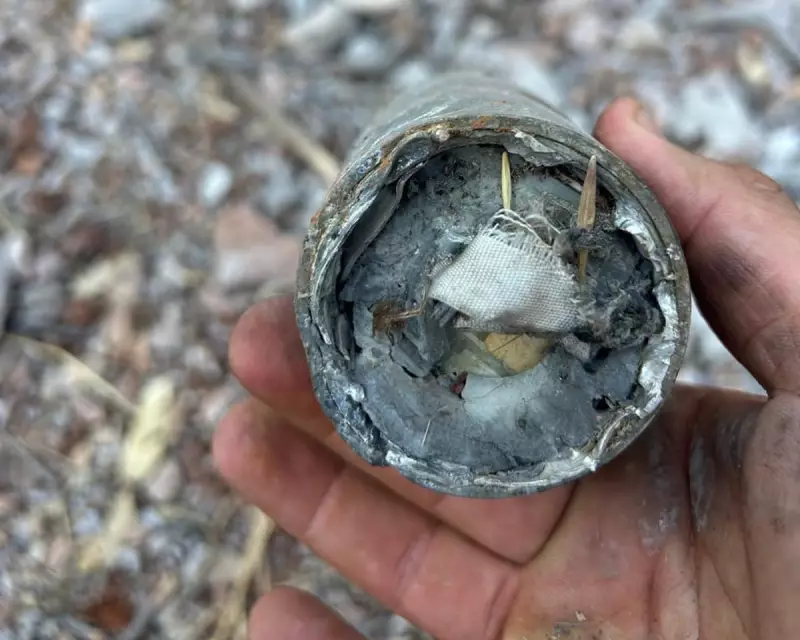
Exclusive photographic evidence obtained by the Guardian indicates that Israel deployed widely banned cluster munitions during its recent 13-month war in Lebanon, marking the first confirmed use of these controversial weapons by the country in nearly two decades.
Weapons Experts Confirm Munition Remnants
Six independent arms specialists have examined images showing remnants of two distinct types of Israeli cluster munitions discovered in three separate locations south of the Litani River. The findings point to the use of both the 155mm M999 Barak Eitan and 227mm Ra'am Eitan guided missiles - representing the first documented deployment of these newly developed cluster weapons.
The evidence emerged from the forested valleys of Wadi Zibqin, Wadi Barghouz and Wadi Deir Siryan in southern Lebanon. Photographs clearly show white nylon ribbons used to stabilise and spin submunitions, along with shell casings marked with the Hebrew word for "cluster".
Understanding Cluster Munitions and Their Dangers
Cluster munitions function as container bombs that release numerous smaller bomblets across an area equivalent to several football fields. Their use is prohibited under international law due to the significant threat they pose to civilian populations long after conflicts end.
Tamar Gabelnick, director of the Cluster Munition Coalition, emphasised that "the use of cluster munitions is always in conflict with a military's duty to respect international humanitarian law because of their indiscriminate nature at time of use and afterwards."
The weapons leave behind substantial numbers of unexploded submunitions - up to 40% in some cases - which can detonate when disturbed by civilians, causing casualties for decades following conflicts.
Lebanon's Painful History with Unexploded Ordnance
Lebanon bears deep scars from previous cluster munition use. During the final days of the 2006 war, Israel blanketed the country with approximately 4 million cluster bombs, with an estimated 1 million failing to detonate initially.
Since 2006, unexploded bomblets have claimed more than 400 lives in Lebanon, creating persistent dangers for communities in southern regions. This devastating legacy directly influenced the creation of the international Convention on Cluster Munitions in 2008.
While 124 nations have joined the convention, Israel remains outside the agreement and therefore not bound by its restrictions.
New Weapons, Familiar Dangers
The identified M999 Barak Eitan artillery shells, produced by defence contractor Elbit Systems in 2019, each release nine submunitions that explode into 1,200 tungsten shards. Meanwhile, the Ra'am Eitan guided missiles reportedly contain 64 bomblets each.
Israeli media claims these new munitions feature significantly reduced dud rates, with the Ra'am Eitan allegedly having a failure rate of just 0.01%. However, weapons experts caution that manufacturer claims often prove inaccurate in field conditions.
Brian Castner, head of crisis research at Amnesty International, stated that "cluster munitions are banned internationally for a reason. They are inherently indiscriminate and there is no way to employ them lawfully or responsibly."
The Israeli military declined to confirm or deny using cluster munitions, asserting only that it "uses only lawful weapons, in accordance with international law and while mitigating harm to civilians."
The recent conflict between Israel and Hezbollah, which began in October 2023, resulted in nearly 4,000 fatalities in Lebanon and approximately 120 in Israel, leaving much of southern Lebanon in ruins despite a ceasefire agreement.





